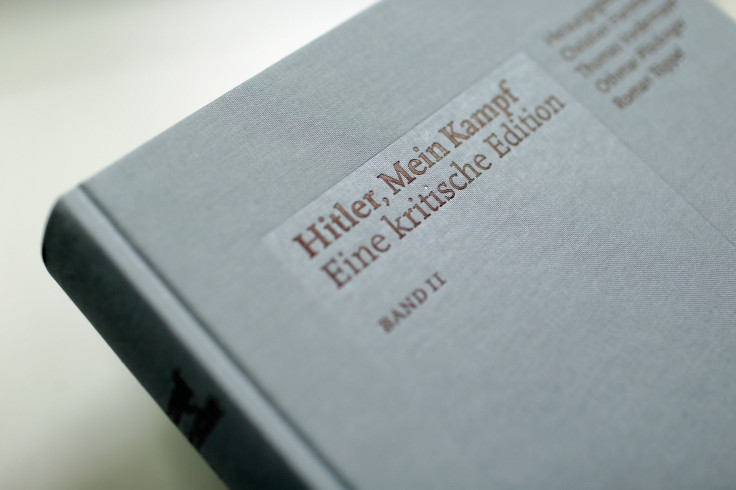Hitler's ‘Mein Kampf’ Sells Out In Germany Just Days After Hitting Bookstores

A new, heavily annotated version of “Mein Kampf” — Adolf Hitler’s semi-autobiographical manifesto — has reportedly sold out just days after hitting German bookstores. The book was published in the country for the first time in 70 years after the copyright, held by the German state of Bavaria, expired.
According to reports citing officials at the Munich Institute for Contemporary History, which published the annotated two-volume work, 15,000 advance orders for the book had already been received, against an initial print run of just 4,000 copies. Additionally, the institute has received requests for translating the controversial work into Italian, French and English.
Copies of the new edition, which has been priced at 59 euros ($64.5), have also been put on sale on the German website of online retailer Amazon for 385 euros ($421), over six times the publisher's price.
“Mein Kampf,” or My Struggle, was written by the German despot in the 1920s, mostly while in prison. Academics argue that reading the tome is essential to understanding the Holocaust and demystifying Hitler’s brutal rule. Even prior to the current republication of the heavily annotated version, second-hand hard copies of the text from the pre-1945 Nazi era have been available in bookshops in Germany and online.
Those who argue in favor of republication of the book — which is banned in several countries, including Austria and the Netherlands, but has long been freely available in many others, such as the U.S. and India — say that a properly annotated edition could curb any future rise in neo-Nazi and far-right propaganda, especially in the current context where a growing influx of refugees in the country has fueled fierce debate.
However, those who oppose the republication of the book, which includes several Jewish community leaders from Germany, say the “anti-Semitic diatribe” should remain banned.
“Unlike other works that truly deserve to be republished as annotated editions, Mein Kampf does not,” Ronald Lauder, president of the World Jewish Congress, told Agence France-Presse. “Now, it would be best to leave 'Mein Kampf' where it belongs: the poison cabinet of history.”
© Copyright IBTimes 2024. All rights reserved.












